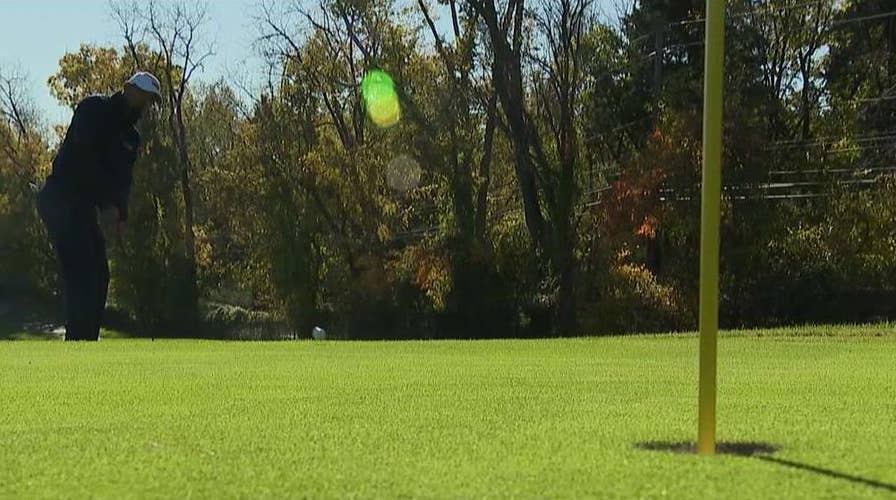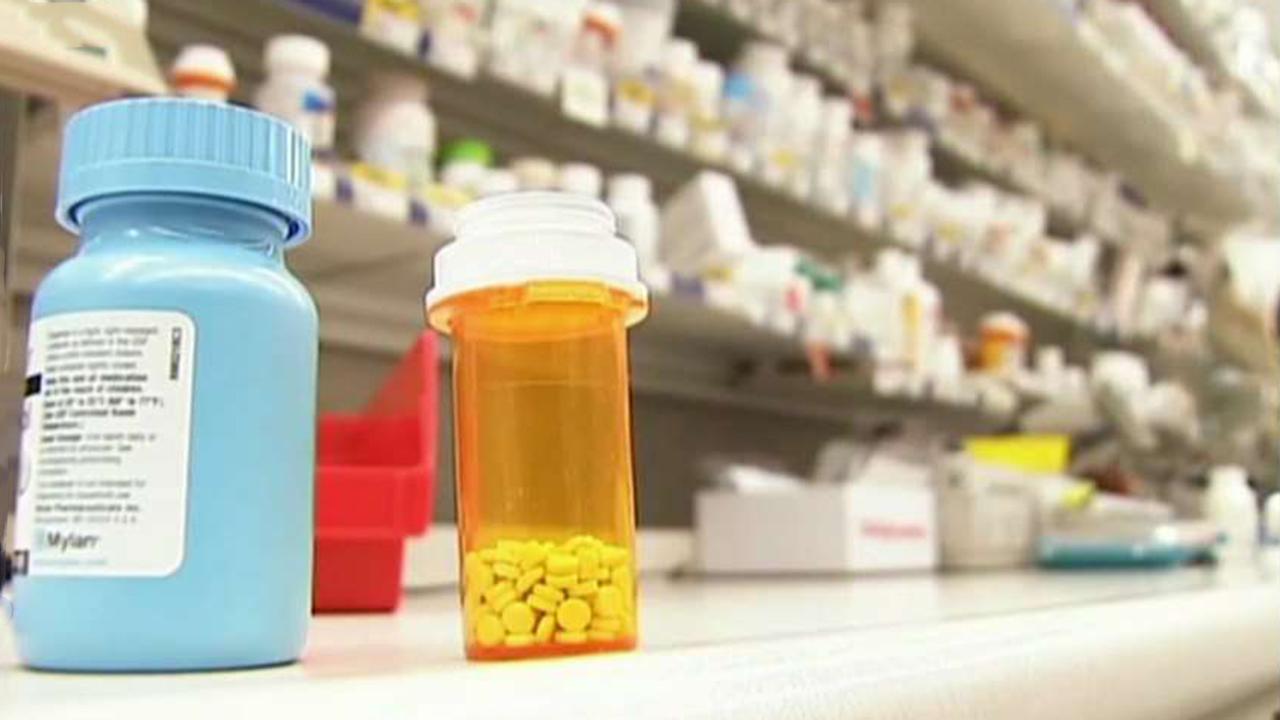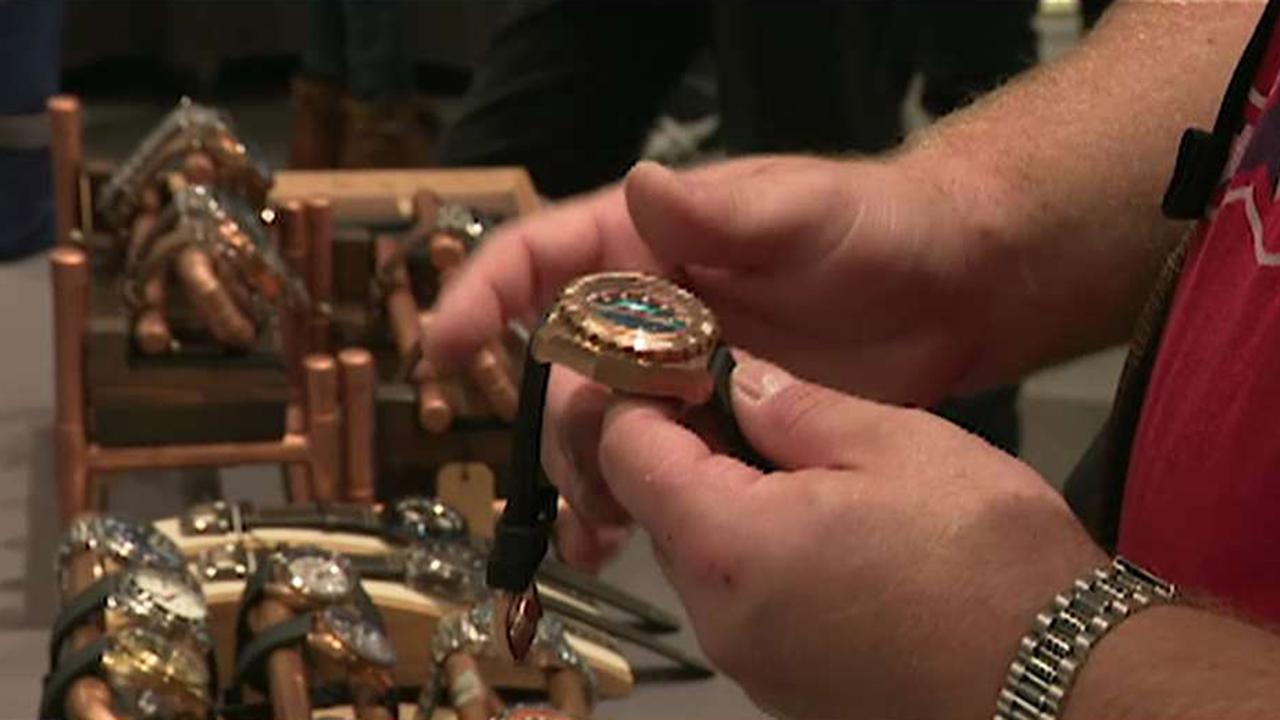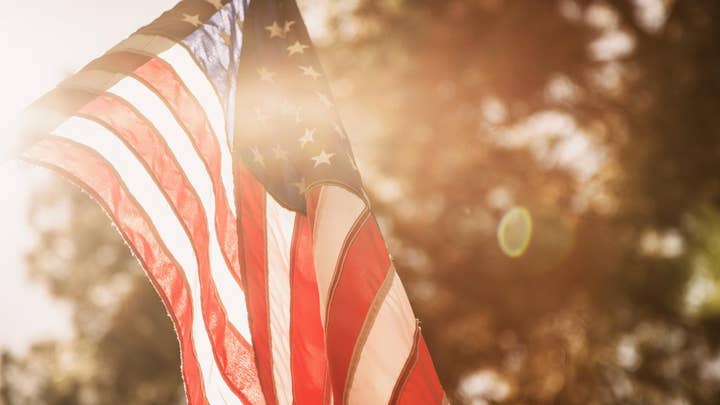PGA helping veterans through golf
Veterans reflect on power of PGA HOPE program; Lucas Tomlinson reports.
Former Army Spc. Mary Anderson-Kokell is crediting a PGA charity program with saving her life through golf.
PGA HOPE [Helping Our Patriots Everywhere] introduces golf to veterans with disabilities as a type of therapy.
Mary Anderson-Kokell was one of 20 veterans invited to Congressional Country Club in Bethesda, Md., as part of PGA HOPE’s inaugural National Golf & Wellness Week. The country club has partnered with PGA HOPE since 2017, but this was the first year it invited veterans from across the nation to act as ambassadors from their regions.
“I want to shout it from the rooftops that this game of golf could help someone take a traumatic experience and feel better about themselves,” Anderson-Kokell said.
The veteran, who served in the Army during the Vietnam War, met with the 19 other vets and bonded over their military backgrounds, challenges they’ve endured and their love for golf.
“It literally saved my life,” Anderson-Kokell said. “I was ready to commit suicide only two weeks before I went to class, and here I am today.”
The country club was founded in 1921 and has hosted lawmakers and U.S. presidents. Presidents Coolidge, Taft, Hoover, Wilson and Harding were lifetime members. Congressional has hosted the U.S. Open three times and is set to host five major championships and two national championships over the next two decades, according to its website. The club also has been known to open its doors to veterans and was one of the first to host wounded warriors through PGA HOPE.
“They were chosen for who they are and what they think they can achieve through this game and spreading it to others,” PGA of America CEO Seth Waugh said. “We’re trying to give them the tools to do that and what better place to do it than Washington, D.C., and specifically, Congressional.”
Marine Cpl. Chris Nowak helped bring PGA HOPE’s military partnership to life. Serving as the military and veteran liaison for PGA HOPE, he’s known firsthand how healing the game of golf could be for veterans.
“You’re never going to master the game and that’s why it works so great as a modality for veterans,” Nowak said. “It allows me to focus on something else other than my injury. I’m not thinking about being shot and losing my leg and things like that. I’m just focused on striking that golf ball.”
Pfc. Josh Swindle said he’s always felt the need to serve others in his community. Following his time in the Army National Guard, Swindle became a firefighter and was paralyzed when a building collapsed on him.
Swindle was an avid golfer beforehand but struggled to find a way to get back out on the course. He said he contacted a PGA professional at a golf club in Charleston, South Carolina, and was set up with a paramobile golf cart letting him navigate the course, adjust his height to get the perfect putt and stand tall at the tee box.
VETERAN WHO SERVED IN 4 MILITARY BRANCHES REFLECTS: 'I'M A LUCKY GUY'
“Just about everybody that I’ve met has gained great significance from this program and like myself, it’s created great camaraderie and I’m looking forward to seeing the growth of it and more veterans get involved with it,” Swindle said.
PGA of America has worked together with local Veterans Affairs hospitals to recruit patients to the program. Each veteran would be referred to a one-day introductory golf experience and afterwards could participate in a six-to-eight-week program taught by PGA professionals. The program has been expected to help 2,500 veterans this year.
Anderson-Kokell also said her passion has been getting others involved in the golf game. She’s seen more than 500 veterans in the South Florida area join the program and 80 more waiting to get into a class.
“I’m tingling.” Anderson-Kokell said. “I’m so excited to talk about this and to get the message to other veterans. This can help you and this can make your life so much better. Just give it a try.”
Waugh agreed, saying golf has worked as a therapy for many veterans.
“These people come out from a structured world,” Waugh said. “When they get out in the world, the structures disappear. So, to give them something that they can hold onto while walking around in these beautiful places, with people they want to be with and to play a beautiful game, is something that is a gift to us.”
Sgt. J.P. Persaud was able to relate to the lack of structure that life after the military brought.
“I didn’t have that kind of guidance and discipline coming up in the world. I needed that from the Marine Corps and now I have an organization like PGA HOPE guiding me and showing me a better track.”
Persaud said he was in a tough spot following his time as a Marine. He was homeless and his son had stopped talking to him. He eventually learned about the PGA HOPE program and was soon assigned to a class at West Point. He later graduated from the program. His son, Jaylen, was in attendance.
“My son was living with me on Father’s Day and life has just changed incredibly since golf came in my world. I haven’t stopped smiling.”
While football has been a priority for Jaylen, Persaud said he and his son have since golfed together.
“I discovered a program from PGA called First Tee. I signed him up immediately.”
Lee Trevino, who went from the Marines to professional golf and the World Golf Hall of Fame, spoke to the veterans about his time on the course and as a machine gunner.
“Being an ex-Marine, being in the military myself, I know the sacrifice they made,” Trevino said. “I would tell them not to be afraid to try this game. I actually think the HOPE program that we have now is just getting off the ground.”
CLICK HERE TO GET THE FOX NEWS APP
Nowak said next year he hopes to double the number of veterans attending National Golf & Wellness Week.
“We want to continue to grow this and get more veterans involved, not only with the HOPE program but golfing after the HOPE program, and that’s what we’re seeing organically. Veterans are connecting. They’re starting their own leagues and it’s helping them get back into the community.”




